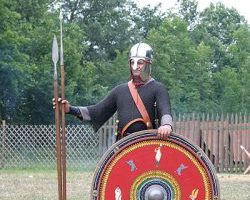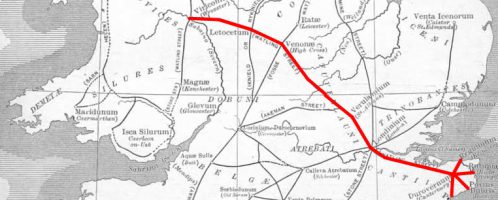Ancient Rome, a
highly expansionistic empire, was involved in many wars. Led by brilliant generals, highly trained and superbly equipped Roman forces could win against an enemy army twice as strong in numbers. There were, of course, some defeats, like the battles of Cannae or Teutoburg Forest.The Roman armies have already confirmed their imperial status at the beginning of the 2nd century BCE, by massacring the Macedonian army
at Cynoscephalae in Thessaly, in 197 BCE. Seven years later Roman legions defeated, at Magnesia in Asia Minor, armies of the Seleucid, considered the prime power of the Hellenic world. Thus the legions proved themselves the
finest army in the region. The decline of legions’ power became apparent in the 3rd century of the Common Era. Eventually, the ‘Germanisation’ of the Roman army and consequential loss of fighting prowess resulted in the fall of both army and the Roman state.











